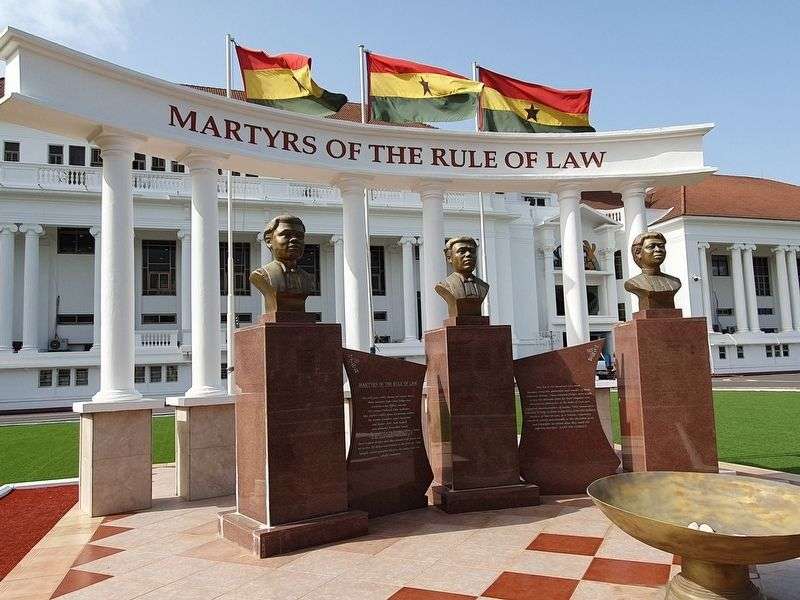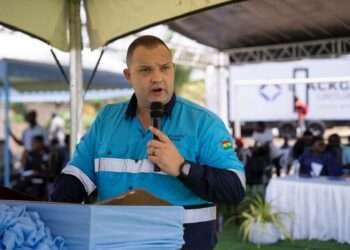The ongoing sub judice debate has intensified as Prof. Stephen Kwaku Asare, legal expert and Democracy and Development Fellow at CDD-Ghana, addresses critics who have questioned his public analysis of the discovery request in the National Security Bureau (NSB) case.
Since Prof. Asare, widely known for his legal insights, began offering his analysis of the discovery request filed in court by the lawyers of Adu Boahene, former Director of NSB, some commentators have invoked the sub judice principle.
These critics argued that because the matter is presently before the court, outside commentary amounts to interference.
They insisted that Prof. Asare should remain silent to avoid what they term as “poisoning the waters,” potentially prejudicing the court’s application and running a parallel legal process outside the courtroom.
Prof. Asare, however, strongly disagrees with this interpretation.

“The sub judice rule is not a gag order. It was crafted to protect jury trials from improper influence. It was not created to insulate trained judges from reasoned legal analysis.”
Prof. Stephen Kwaku Asare
The legal scholar emphasized that judges are not laypersons like jurors but trained professionals equipped to remain impartial and analytical even when faced with external commentary.
He underscored that this professional detachment is at the core of judicial independence and the integrity of democratic institutions.
Sub Judice Misuse Threatens Public Education
Prof. Asare firmly believes that misapplying the sub judice rule stifles free speech and undermines public understanding of the law.
According to him, democratic principles are not served when legitimate legal commentary is suppressed, particularly when the situation involves no jury, no gag order, and no behavior that threatens the proceedings’ integrity.

He explained that analyzing court documents that have already been publicly filed should be seen as an act of civic education rather than contempt of court.
In his view, such analysis informs the public without binding the court or usurping the judge’s authority.
“Nothing in the commentary suggested that the accused lacks the right to seek discovery. The issue is specific: whether this particular request—for decades of national security operational records—meets the evidentiary thresholds established by law.”
Prof. Stephen Kwaku Asare
He emphasized that raising these questions publicly does not compromise the proceedings. Rather, it clarifies complex legal questions for ordinary citizens, helping them differentiate between “a legal right and a legal tactic.”
Public Understanding, A Constitutional Right
Prof. Asare further asserted that while the judge’s ruling will ultimately be delivered in the courtroom, the broader public square remains an essential arena for discussion, debate, and demystification of legal processes.
For this reason, Prof. Asare noted that he will continue his mission of providing civic legal education without retreat.
The legal expert assured that public commentary does not threaten the accused’s fundamental rights, which include a fair and public hearing, legal representation, presumption of innocence, a speedy trial, cross-examination of witnesses, and the right to present a defense.
Prof. Asare stressed that he fully supports these constitutional protections.
Yet, he argued that protecting the right to a fair trial should not mean sacrificing free expression.
Both, he maintained, are essential elements of a democratic society and can coexist in harmony. “They are not in tension. They are twin pillars of a constitutional democracy—and they can, and must, coexist.”
Prof. Asare also pointed out that this position is not new, indicating that he adopted the same approach during the election petition proceedings, where legal commentary was widely permitted.
If it was acceptable then, he argued, it remains so now—especially when such commentary is rooted in sound legal principles, reasoned logic, and respectful discourse.

According to Prof. Asare, it is long overdue for the legal community and the public to retire the use of sub judice as a rhetorical tool to shut down legal commentary.
In a democratic state where justice ultimately flows from the people, the public deserves to understand the legal processes conducted in their name.“Let the court decide. But let the people understand.”
This ongoing debate has reignited broader conversations about the balance between judicial independence, public discourse, and democratic transparency.
As the NSB case continues to unfold, it remains clear that the role of sub judice in Ghana’s legal discourse will continue to spark passionate and complex discussions across the nation.
READ ALSO: Lands Minister, Chamber of Mines Commit to Responsible Mining




















